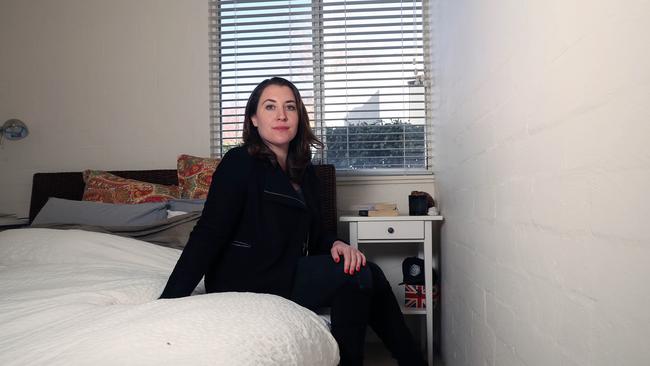Journalist’s ‘threat to national security’ questioned
A story by a News Corp journalist about the Australian Signals Directorate’s cyber capabilities exposed no sensitive information, says Labor’s legal affairs spokesman Mark Dreyfus.

Defence Department secretary Greg Moriarty says a story by News Corp Australia journalist Annika Smethurst threatened national security because it detailed the Australian Signals Directorate’s cyber capabilities, despite similar information being available on its website.
Mr Moriarty told parliament’s intelligence committee that the story, about plans to extend the directorate’s surveillance powers to domestic targets, had exposed the spy agency’s “computer network exploitation capabilities and offensive cyber capabilities”.
But opposition legal affairs spokesman Mark Dreyfus said the agency had made similar statements about its abilities to infiltrate networks and disrupt adversaries through offensive cyber operations.
“What has she disclosed in this story that poses a problem beyond the public relations or public confidence aspects of these plans being revealed?” Mr Dreyfus said.
He asked whether Smethurst’s story referred to “very sensitive descriptions” of how Australia conducted the cyber defence of critical infrastructure.
Mr Moriarty replied: “No, it talks about what ASD may or may not do.”
Department of Home Affairs secretary Mike Pezzullo told the committee he was unable to say how many warrants had been issued to monitor journalists, an admission branded “deeply disturbing” by News Corp Australia executive Campbell Reid.
“I must say my blood ran a little bit cold because I was still optimistic enough to think that the number of journalists under surveillance of any kind in Australia would be a handful,” Mr Reid said.
“The answer seems to suggest otherwise and I would really ask that more work is done on this, because I think the Australian public and journalists, but most importantly the people who speak to journalists, should know what risk they are under in regards to their conversations or engagement with journalists.”
Mr Reid, who appeared before the committee with fellow media executives from the ABC and Nine, called for a new approach to press freedom by the government “that favours openness over secrecy”, describing the raids as the “straw that broke the camel’s back” in a sustained erosion of transparency over the last decade.
But Mr Pezzullo defended the police raids on the home of Smethurst and the ABC’s Sydney headquarters.
He told the committee, which is examining the impact of law-enforcement and intelligence powers on the freedom of the press, that the Smethurst story and another by the ABC, which both relied on leaked documents, had crossed a line.
“In both cases, the material in question relates to documents with classifications top secret or above, where it’s not simply the description of procedures, operations and documents being imparted to journalists, but obviously the transmission of documents,” the departmental head said.
Mr Pezzullo said those who leaked classified information should feel the full force of the law. “If that regrettably involves a term of imprisonment, then so be it,” he said.
News Corp Australia publishes The Weekend Australian.




To join the conversation, please log in. Don't have an account? Register
Join the conversation, you are commenting as Logout